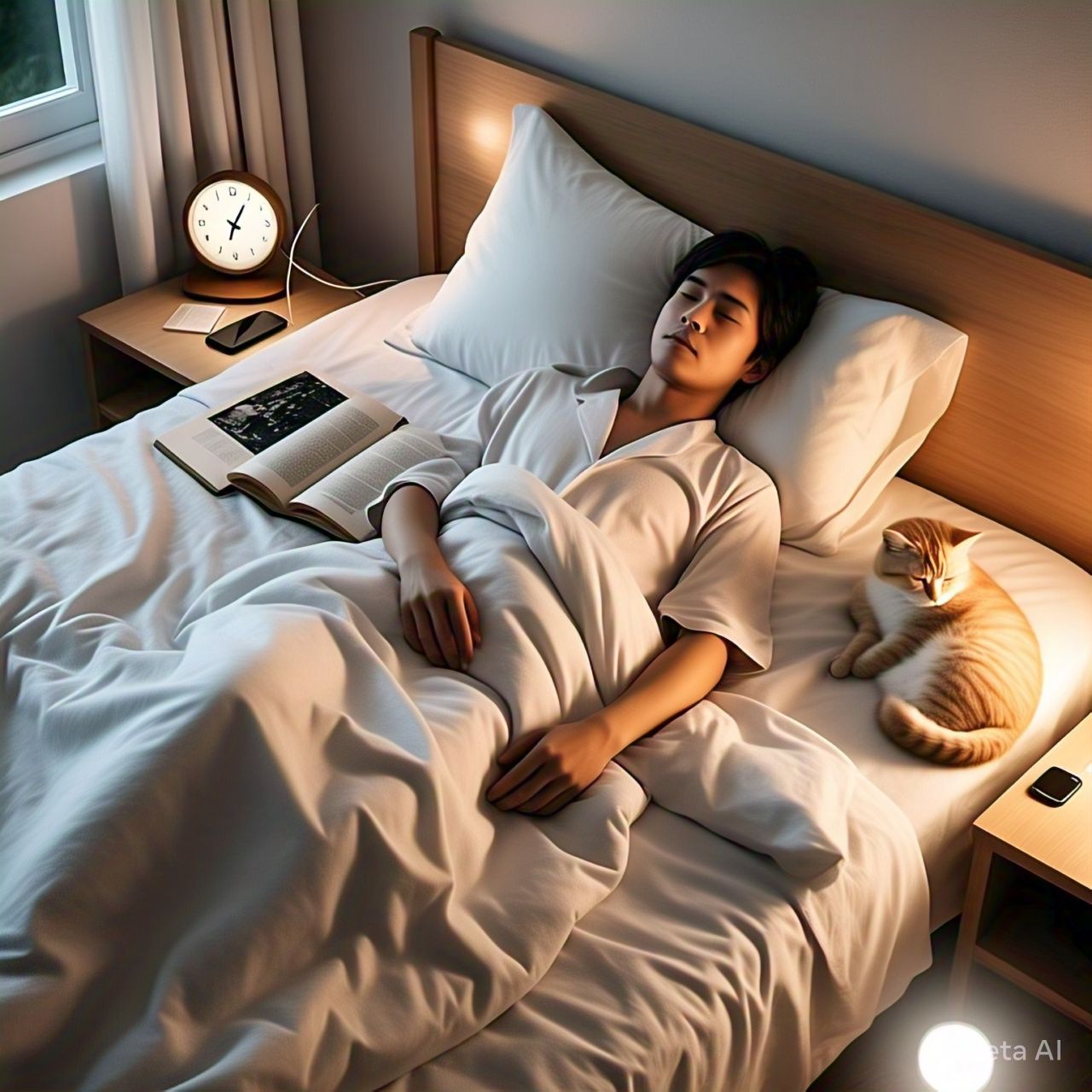If you wake up feeling tired, groggy, or unrefreshed — even after a full night in bed — the problem might not be the number of hours you sleep, but what you’re doing before and during the night.
Many everyday habits can silently disrupt your sleep quality, affecting your focus, mood, energy, and even physical health.
In this article, we’ll explore 5 common habits that might be sabotaging your sleep — and what you can do to change them.
1. Scrolling Before Bed
It’s tempting to wind down by checking your phone in bed — whether it’s social media, the news, or messages. But this habit can seriously impact your sleep.
Why it’s harmful:
- Blue light from screens interferes with melatonin production — the hormone that helps you sleep
- Stimulating content can make your brain more alert, not relaxed
- It can delay your sleep time without you noticing
What to do instead:
- Set a “digital curfew” — stop screen use at least 30–60 minutes before bed
- Keep your phone out of reach (or out of the room)
- Read a physical book, stretch, or listen to calm music instead
2. Inconsistent Sleep Schedule
Going to bed and waking up at different times every day disrupts your body’s circadian rhythm, which controls your internal clock.
Why it’s harmful:
- Makes it harder to fall asleep and wake up naturally
- Reduces deep sleep and sleep quality
- Causes a “social jet lag” effect, even if you’re not traveling
What to do instead:
- Go to bed and wake up at roughly the same time every day — yes, even on weekends
- Expose yourself to natural light in the morning to reset your rhythm
- Create a short, relaxing nighttime routine to signal your body that it’s time to rest
3. Caffeine Too Late in the Day
Coffee, tea, soda, chocolate, and even some medications contain caffeine, which can stay in your system for up to 8 hours.
Why it’s harmful:
- Delays the onset of sleep
- Reduces deep sleep
- May cause restless or interrupted sleep — even if you fall asleep easily
What to do instead:
- Avoid caffeine after 2:00–3:00 PM
- Switch to herbal teas (like chamomile or peppermint) in the evening
- Be mindful of hidden sources of caffeine in your diet
4. Eating Too Late at Night
Having a heavy meal too close to bedtime can disturb your sleep more than you think.
Why it’s harmful:
- Digestion requires energy and can keep your body “active” when it should be winding down
- May cause discomfort, acid reflux, or bloating
- Can interfere with melatonin production
What to do instead:
- Finish your last meal at least 2–3 hours before bedtime
- If you’re hungry late at night, choose a light, sleep-friendly snack like a banana or a few almonds
- Avoid spicy, greasy, or high-sugar foods before bed
5. Taking Long Naps During the Day
Naps can be beneficial — but when they’re too long or too late in the day, they can throw off your natural sleep cycle.
Why it’s harmful:
- Reduces your sleep drive at night
- Makes it harder to fall asleep or stay asleep
- Confuses your body’s energy rhythm
What to do instead:
- Keep naps short (20–30 minutes)
- Nap before 3:00 PM
- If you’re extremely tired, consider adjusting your nighttime sleep routine instead
Bonus Tip: Watch Your Sleep Environment
Even if your habits are on point, your bedroom could be affecting your sleep without you realizing it.
Ask yourself:
- Is the room too warm or cold?
- Is there too much light or noise?
- Is your mattress or pillow uncomfortable?
- Is your bedroom filled with screens or clutter?
Make your sleep space a calm, dark, cool, and quiet place where your body feels safe to relax.
Final Thoughts: Better Sleep Starts With Small Shifts
You don’t need to overhaul your life to sleep better — just start by identifying and adjusting one or two habits.
A better night’s sleep means:
- More energy during the day
- Improved mood and focus
- Stronger immunity and metabolism
- A calmer, more balanced mind
So tonight, try putting the phone down earlier. Stick to a set bedtime. Choose a lighter dinner.
Your future self — and your brain — will thank you.
